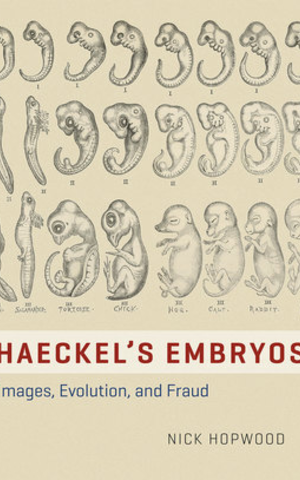
Haeckel's Embryos: Images, Evolution, and Fraud
- Book
- Jan 10, 2015
- #NaturalScience
Pictures from the past powerfully shape current views of the world. In books, television programs, and websites, new images appear alongside others that have survived from decades a...
Show More
Number of Pages: 392
ISBN: 022604694X
ISBN-13: 9780226046945
Mentions
See All
Sarah Bull @sarahebull
·
Sep 27, 2022
- Answered to Any recs for great academic books or articles or whatever on/that deal with repetition?
- From Twitter
Adding to this thread myself since a couple of people have expressed interest in different approaches: I've found Nick Hopwood's Haeckel's Embryos impressively unrepetitious for a book about copying/repetition: